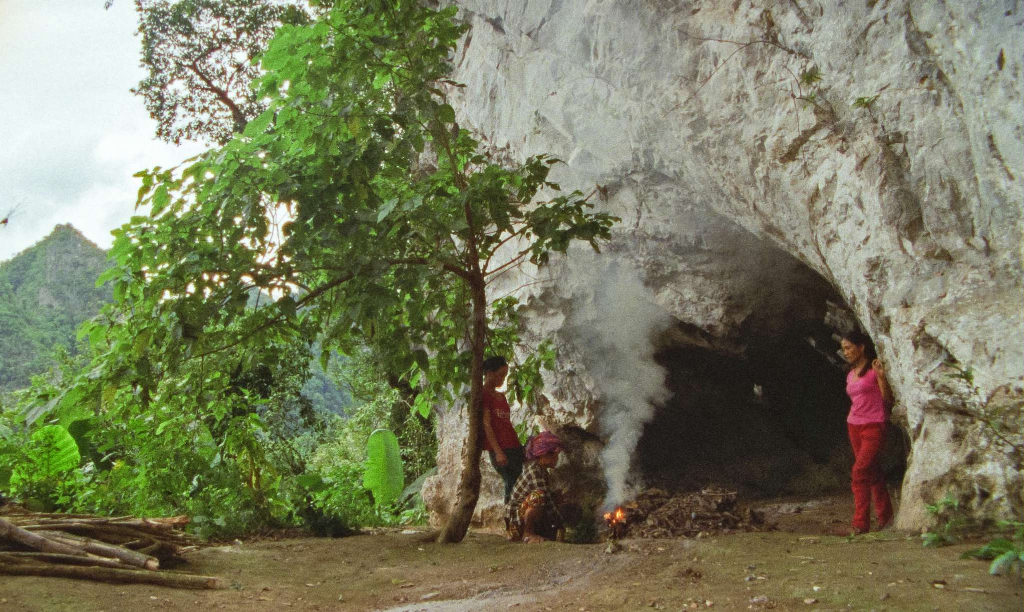The Tree House (Nhà cây)

The poetry of The Tree House is in its high concept framework that complicates space and time, its grammar of images that is essentially discontinuous, its concern with urban progress, and its earnest metatextual awareness of ethnographic filmmaking. This marriage of being, aesthetics, politics and the artist constitutes what we consider as poetry. This is the art object we look around and across, from which we parse the relationship between content and form. Look, we may not.
Our fictionalised filmmaker is on Mars in 2045. His work is constructed from footage of home, the noticeably uncultivated forests of Viet Nam. This place is inexorably distant: first, from the perspective of Mars; second, from the perspective of city dwelling, from any tendency towards the metropolis. In the tradition of documentary realism, indigenous village populations ruminate on their upbringing, their lives, and their anxiety of displacement through warfare or modernity. They are products of either looking backwards or forwards. Americans torched the tree houses, these omens of avaricious destruction.
Pious voiceover reckons with the half-imagined participants, units of unavoidable exploitation. This is almost a given. Observation methods of ethnography are not pristine. And as viewers, our sight is innately compromised – as is the filmmaker’s, as is the subject’s. That Trương Minh Quý draws attention to the bias of looking and recording is crucial but his thesis needs more confidence. The interplanetary gaze would seem to offer a fresh portal of understanding, but here it appears a little oblique and tentative.
The first-time director renders in binary the nature of life and the proximity of death. We look at surroundings of vast green and rock, lush and unending. We see acts of grieving in stark negative image, terrifying and immediate, as glaring declarations of sorrow. These breaks into negative are potent if uncertain moments; they invoke our relationship to the end without obvious concession to our feeling and thinking, only to our viscera.
To classify this film as poetry does not suggest a particular valence, just to say it is silly and grandiose but attentive to its subjects, to the heartrending process that pieces together memory. This murky, consciously artful window into human experience makes clear the unreliability of its panes and prisms. It rather acts as a wry rejoinder to the social sciences, which rarely considers ecstasy and the sublime, let alone rhyme and metre.
Joseph Owen
The Tree House (Nhà cây) does not have a UK release date yet.
Read more reviews from our Locarno Film Festival 2019 coverage here.
For further information about the event visit the Locarno Film Festival website here.

























Facebook
Twitter
Instagram
YouTube
RSS